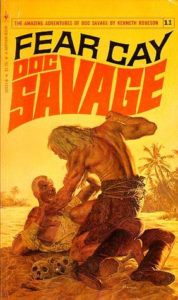As I have been working editing a sequel novel my thoughts have turned to the tricky nature of sequels in general. There is no place more in love with sequels that Hollywood. Given the sums of money on the line, both for production and potential profit, the idea of returned to a tried and true success if often one that movie producers cannot resist. Yet time and time again the sequels that are produced often are disappointments both commercially and as entertainment. Publishing has a similar thought relationship, albeit though with greater success than feature film in producing satisfying sequels projects. What is it about sequels that makes them so challenging?
The first impulse when a sequel is produced it simply to copy the parent project. You need look no further afield than Jawsand Jaws 2for an example that is nearly a platonic ideal of this principal. This tends to fail because what made the parent project so fresh and innovative simply cannot be fresh a second time around. We have literally seen it before and the desire for new ground, new stuff often overpowers the desire for a repeat performance. A successful sequel must break new ground, giving the audience something that they did not know that they wanted.
It is also possible to be too new and break so afield from the previous works that the audience simply has no interest and this new thing you have sold them dressed up as something it is not. This issue happens far less often than the rote copying of the previous work but it can be seen in Halloween III, which ignored the previous two films of the franchise in an attempt to establish the title as part of an anthology brand. The filmmakers wanted a wholly new concept but the audience wanted more of a slasher wearing a painted over William Shatner mask,
The third major way a sequel can go astray is to destroy the emotional investment the audience paid with the previous works. When someone truly loves a piece of narrative work they have infused that project with serious emotional capitol, paying with their apprehension and their concern for the stakes that characters faced. The emotional profit that they reap from the experience exceeds the tension that they endured during the narrative. Some sequels, in an attempt to break free of old patterns and find that elusive new ground, undo the rewards from the previous encounters and in effect tell the audience that they had been suckers for caring about the previous outcomes. A perfect cinematic example of this is Alien 3. Aliensa nearly perfect sequel that blended the established character with new situations quickly became a favorite but for many its sequel, Alien 3is thought of with scorn and hatred, Some people even insist that Alien 3ruined for them the previous film Aliens.I believe those harsh reactions are a direct result of the filmmakers, unintentionally mind you, telling the audience that they had been fools to emotionally invest in the well-being of Hicks and Newt. Every erg of emotional energy spent caring about those characters; feeling scared for those characters, cheering their survivals had been a con. Killing those characters in an off hand manner devalued the story of Aliensand naturally devalued any emotions wasted on Hicks and Newt.
Creating a successful sequel requires navigates these three major pitfalls, you cannot simply copy what transpired before, you cannot venture too far from what has been established, and you must not negate the emotional investment made in the previous projects.

